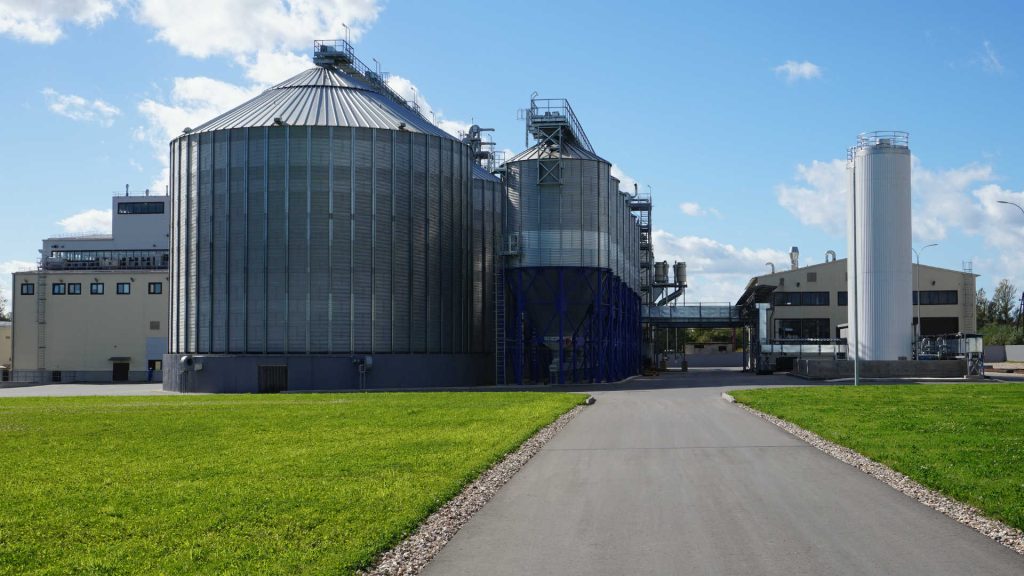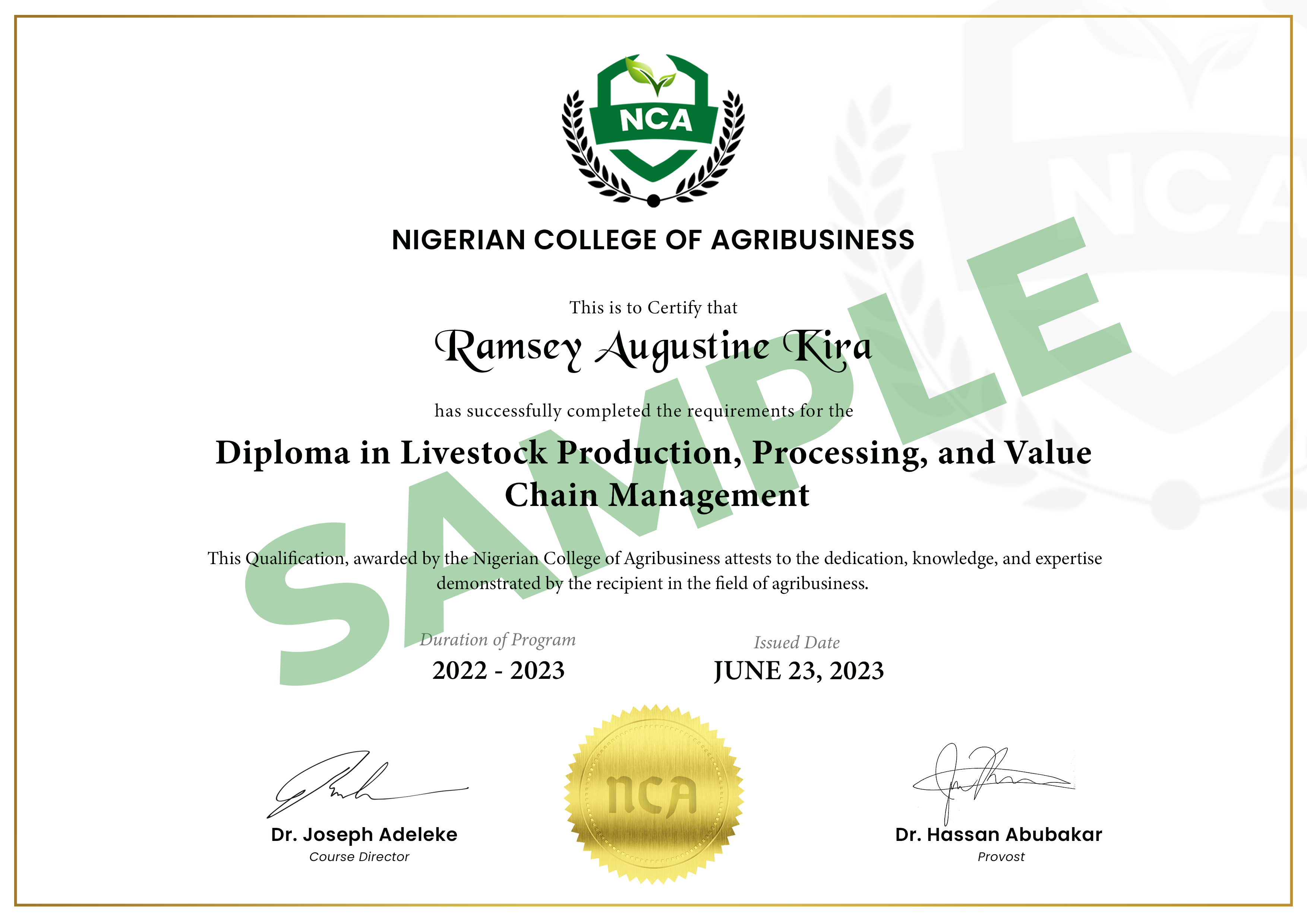
The Diploma in Feed Mill Operations and Management is designed to equip participants with the theoretical knowledge and practical skills required to efficiently manage and operate feed milling operations. This program covers a broad range of topics, including feed technology, nutrition, mill management, machinery operation and maintenance, quality control, and safety standards. Students will learn through a combination of lectures from seasoned professionals in feed mill operations, hands-on training, and real-world case studies. Upon completion, graduates will be prepared to address the challenges of the feed milling industry, ensuring productivity, sustainability, and compliance with regulatory standards.
This program is ideal for:
Each student will be required to complete an individual project that involves designing a comprehensive operation and management plan for a feed mill. This project will encompass aspects such as layout planning, equipment selection, operational workflow, quality control measures, safety protocols, and financial planning. The project will be presented to a panel of faculty members and industry experts at the end of the program.
Each Module is delivered online by seasoned professionals and guest lecturers. Modules with practical and laboratory contents are simulated in a model that allows participants to have full understanding of the process flow. Other features of the course include Group Class Activities, Case Study Analysis of several feed mill companies and factors that influence their performance.
Upon successful completion of the course, graduates will earn a Diploma in FeedMill Operations and Management from the Nigerian College of Agribusiness. At the Convocation Ceremony, graduating students will receive their Certificate and Transcripts of academic records.
NGN 250,000
26th February, 2024

Click on the link below to fill the application form for this course
Do you need any further assistance regarding this program, send an email to: [email protected] or chat with a program executive on WhatsApp via: 09023789104 (Nigeria)
Ready to Begin your application process? Click on “Apply Now” to access the application form.
Established in 2022 and approved by the National Board for Technical Education (NBTE), the College provides high-quality specialized education that strives to improve the productivity, performance and continuous development of professionals in Nigeria. The College has the Centre for Environment and Climate Innovation, Centre for Agribusiness Enterprise, Centre for Centre for Nutrition and Wellness, Centre for Development Leadership, Centre for Farm Management and Centre for Food Business Innovation. Through these centers, the college delivers need-based professional education to diverse professionals across the country and beyond. In 2023, the Nigerian College of Agribusiness was admitted into E4Impact Alliance, a network of leading business schools in Africa helping startups in Africa to scale up and attain their full potentials. Other members of E4Impact Alliance include University of Professional Studies Accra, University of Makeni Sierra-Leone and Uganda Martyrs University Kampala.

Our mission is to cultivate a vibrant, sustainable and profitable agribusiness sector that drives economic growth and social progress across Africa and beyond.
We are committed towards educating a new generation of agribusiness sector leaders that will transform the economic fortunes of the African continent
© NCAEDU 2023 All Rights Reserved.